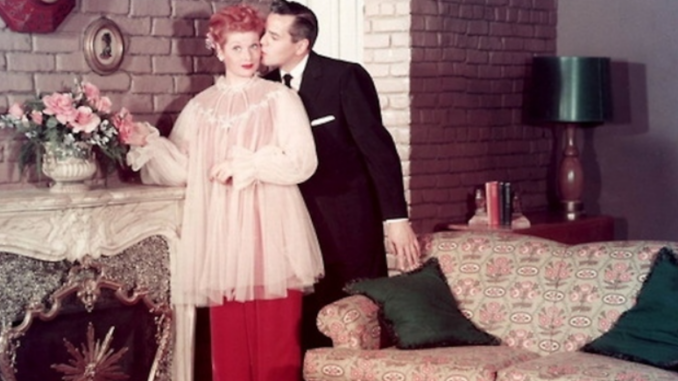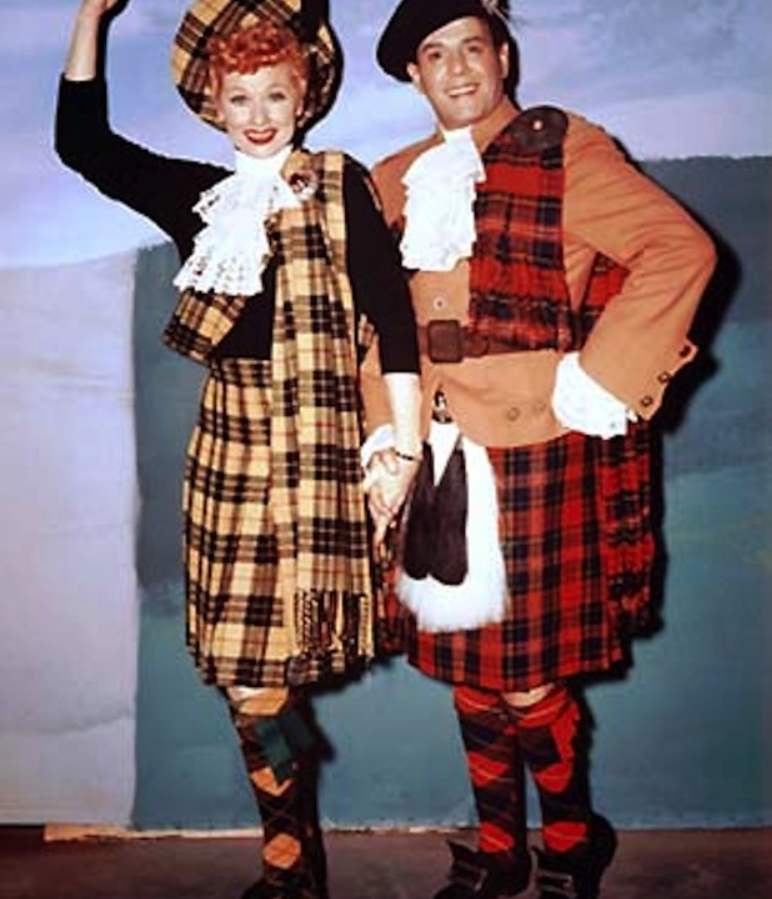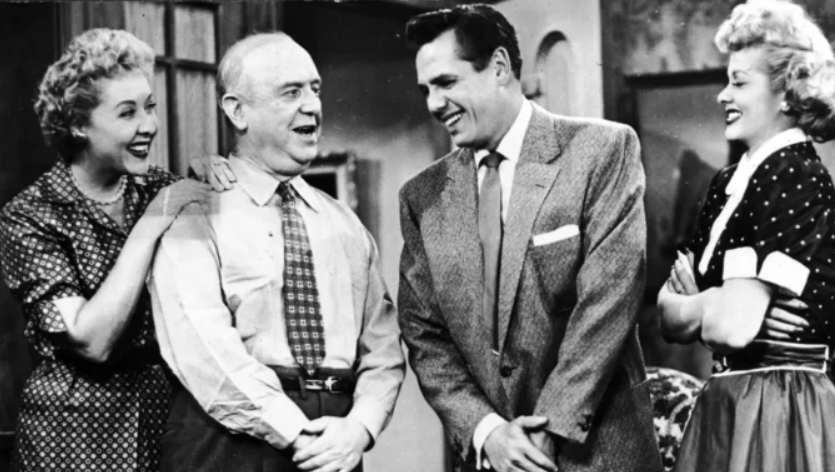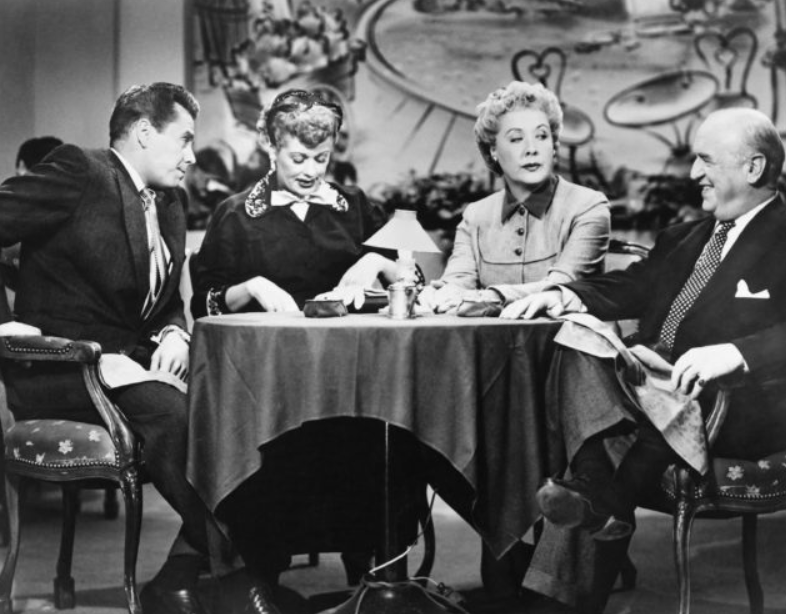
“I Love Lucy” was one of the most-watched television shows in the United States during its original run from 1951 to 1957. The antics of Lucy and Ricky Ricardo, along with their landlords and friends Fred and Ethel Mertz, gained the affection of the public and helped the show become a pioneer of comedy television. While millions laughed at the comedic brilliance of the show, many intriguing behind-the-scenes facts contributed to the magic of “I Love Lucy.” This article explores six lesser-known behind-the-scenes stories that added to the charm and legacy of the beloved series.
Contents
1. Lucille Ball Insisted That Her Real-Life Husband Be on the Show
Lucille Ball and Desi Arnaz not only played the married couple Lucy and Ricky Ricardo on “I Love Lucy,” but they were also married in real life. The couple first met while filming the Broadway musical comedy “Too Many Girls” in 1940 and eloped just six months later on November 30, 1940. When Lucille got her own show, she insisted that Desi be cast as her on-screen husband. Network executives were initially skeptical, believing the public wouldn’t accept Lucy being married to someone from another country, despite it being true in real life.
Lucille and Desi’s marriage lasted for two decades, and they shared two children together, Lucie Arnaz and Desi Arnaz Jr. Although their marriage ended in 1960, they co-parented their children and remained friends, preserving the legacy of their on-screen partnership throughout the show’s entire airing.
2. Lucille Was Really Pregnant

Lucille Ball made television history when she shot the pilot for “I Love Lucy” while she was six months pregnant with her first child. Although the pilot never aired, it set a precedent. During the show’s second season, Lucille became pregnant with their second child, and the network allowed her to continue filming despite the Code of Practices for Television Broadcasters, which typically forbade anything considered sexual, including pregnancy. Strict rules were in place, such as prohibiting the word “pregnant” from being said on screen. This groundbreaking decision paved the way for more realistic portrayals of family life on television.
3. Lucille Wasn’t a Natural Redhead
The iconic red hair that Lucille Ball is remembered for was not her natural hair color. Lucille was born a natural brunette and had dyed her hair blonde numerous times before transforming into the vibrant redhead we know today. Her hairstylist, Irma Kusley, explained that the color was actually a “golden-apricot color” that required constant maintenance. Lucille had a safe filled with the henna rinse needed to achieve the perfect shade and frequently had to use it to maintain her famous look.
4. William Frawley Was a Die-Hard Baseball Fan

William Frawley, who played Fred Mertz, was an avid baseball fan, particularly of the New York Yankees. His love for the sport was so intense that when he signed his contract for “I Love Lucy,” he included a clause that allowed him to miss tapings if the Yankees made it to the World Series. Given the Yankees’ success during the 1950s, Frawley missed two episodes to attend the games. This clause highlighted his dedication to baseball, demonstrating his passion extended beyond the screen.
5. William and Vivian Feuded
Fred and Ethel Mertz, played by William Frawley and Vivian Vance, appeared to have a harmonious relationship on screen, but their off-screen relationship was anything but. Vance, who was 22 years younger than Frawley, did not find the idea of being married to an older man believable and expressed her dissatisfaction, which Frawley overheard. This sparked a feud between them, with Frawley often criticizing Vance’s singing and making derogatory remarks. Despite their personal animosities, they maintained professionalism, delivering performances that contributed significantly to the show’s success.
6. Lucille’s Mother Was Always There

Lucille Ball’s mother, Desiree “DeDe” Ball, was a constant presence during the filming of “I Love Lucy.” DeDe attended every single taping of the show for its entire six-season run. She was a devoted supporter of her daughter and a genuine fan of the show. Known for her audible reactions, DeDe would often say “uh-oh” whenever Lucy found herself in a predicament. Her voice became part of the live audience recordings, which were used for future laugh tracks. Thus, DeDe’s “uh-oh” can be heard in various television shows, extending her presence beyond “I Love Lucy.”
Conclusion: The Legacy of “I Love Lucy”
“I Love Lucy” remains a cornerstone of television history, beloved for its humor, innovation, and the chemistry between its cast members. The behind-the-scenes stories reveal the dedication and passion that went into creating the show, contributing to its lasting impact. From Lucille Ball’s insistence on casting her husband to the real-life feuds and unique contract clauses, these elements enriched the show’s production and left an indelible mark on television history.

